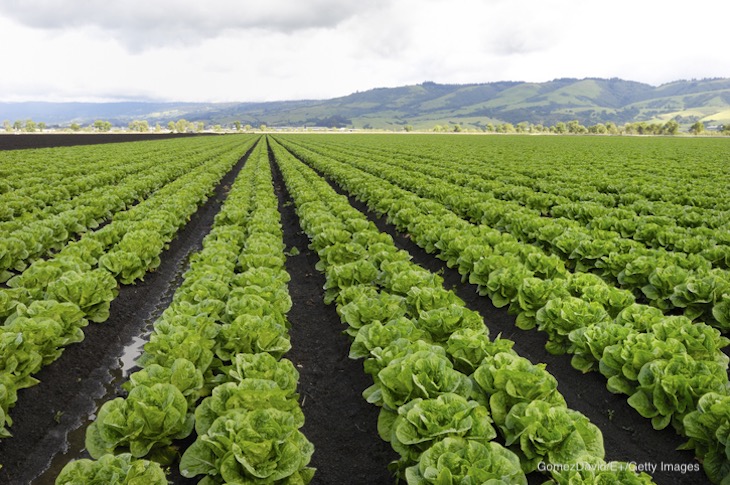A Cornell study finds that overhead spray irrigation with untreated surface water often contaminates Romaine lettuce with pathogenic bacteria such as E. coli O157:H7. This risk was mitigated through either drip or furrow irrigation.

One of the study’s authors, Renata Ivanek, a professor in the Department of Population Medicine and Diagnostic Sciences in the College of Veterinary Medicine, said in a statement, “While not the most common system, spray irrigation is used in a number of fields for its benefits during germination, its cooling effect on plants and other reasons. But drip or furrow irrigation reduces the probability that water directly touches the leaves.”
Along with author Martin Wiedmann, the Gellert Family Professor in Food Safety in the College of Agriculture and Life Science, the study’s authors found interventions that are likely to make a difference in the safety of romaine lettuce.
Romaine lettuce has been the cause of at least 42 serious food outbreaks from 2000 to 2022. In addition, a hidden E. coli O157:H7 outbreak in 2024 sickened at least 98 people; seven of those patients developed hemolytic uremic syndrome (HUS), a type of kidney failure.
A 2016 study published in Applied and Environmental Microbiology showed that the fields that are most problematic are located next to cow feedlots. The cows have E. coli in their digestive tracts and they excrete the pathogen in their feces. The feces contaminate ground and surface water.
The study also pointed out that washing lettuce post harvest, along with time and temperature controls, play a role in the safety of romaine. If contamination happens at the farm, or during transport and processing, the contamination can spread and then bacteria can grow if temperature abuse occurs.
The study aimed to “determine the most effective water treatment method or irrigation system for reducing contamination while balancing costs, public health and ecological considerations.”
- Bulut, E., Murphy, S.I., Strawn, L.K., Danyluk, M., Wiedmann, M. and Ivanek, R. Identifying preharvest risk reduction strategies for Escherichia coli O157:H7 on fresh-cut romaine lettuce in the US industry through application of QMRA. (under submission)




